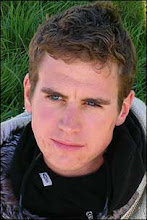http://www.scientificamerican.com/article.cfm?id=honesty-online
When you scan someone’s profile, you probably expect a little fudging: an overly flattering photograph, a generously phrased blurb in the “about me” section. A study in the March issue of Psychological Science, however, suggests that Facebook users do not skew their profiles to reflect idealistic visions of themselves.
In the study, research assistants at the University of Texas at Austin and the University of Mainz in Germany viewed the Facebook profile of a study participant, then guessed how he or she would score on the “big five” common personality measures used in psych?ological research: extroversion, agreeableness, neuroticism, openness and conscientiousness. Next they compared the results based on Facebook with the actual personality test scores from the profile owner and the results from four of his or her “well-acquainted friends,” who also rated the person’s personality traits. The research assistants were successful on four of the five measures—all except neuroticism, which is notoriously to gauge in general.
Patti Wood, MA, Certified Speaking Professional The Body Language Expert Web- http://www.PattiWood.netI have a new quiz on my YouTubestation. Check it out!YouTube- YouTube - bodylanguageexpert's Channel
